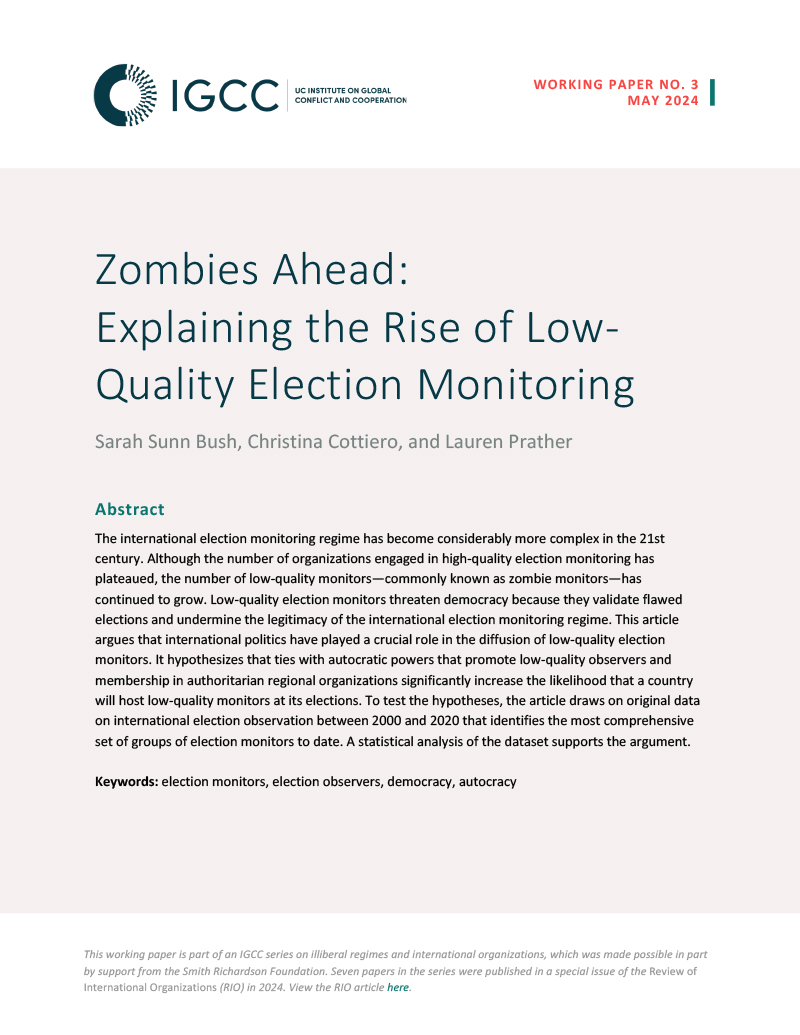Zombies Ahead: Explaining the Rise of Low-Quality Election Monitoring

In this working paper, authors Sarah Bush, Christina Cottiero, and Lauren Prather argue that international politics have played a crucial role in the diffusion of low-quality election monitors. They hypothesize that ties with autocratic powers that promote low-quality observers and membership in authoritarian regional organizations significantly increase the likelihood that a country will host low-quality monitors at its elections.
DownloadThe international election monitoring regime has become considerably more complex in the 21st century. Although the number of organizations engaged in high-quality election monitoring has plateaued, the number of low-quality monitors—commonly known as zombie monitors—has continued to grow. Low-quality election monitors threaten democracy because they validate flawed elections and undermine the legitimacy of the international election monitoring regime. In this article, authors Sarah Bush (University of Pennsylvania), Christina Cottiero (University of Utah), and Lauren Prather (UC San Diego) argue that international politics have played a crucial role in the diffusion of low-quality election monitors. They hypothesize that ties with autocratic powers that promote low-quality observers and membership in authoritarian regional organizations significantly increase the likelihood that a country will host low-quality monitors at its elections. To test the hypotheses, the article draws on original data on international election observation between 2000 and 2020 that identifies the most comprehensive set of groups of election monitors to date. A statistical analysis of the dataset supports the argument.
This working paper is part of an IGCC series on illiberal regimes and international organizations, which was made possible in part by support from the Smith Richardson Foundation. Seven papers in the series were published in a special issue of the Review of International Organizations (RIO) in 2024. View the RIO article here.
Thumbnail credit: Scott Beale / Laughing Squid